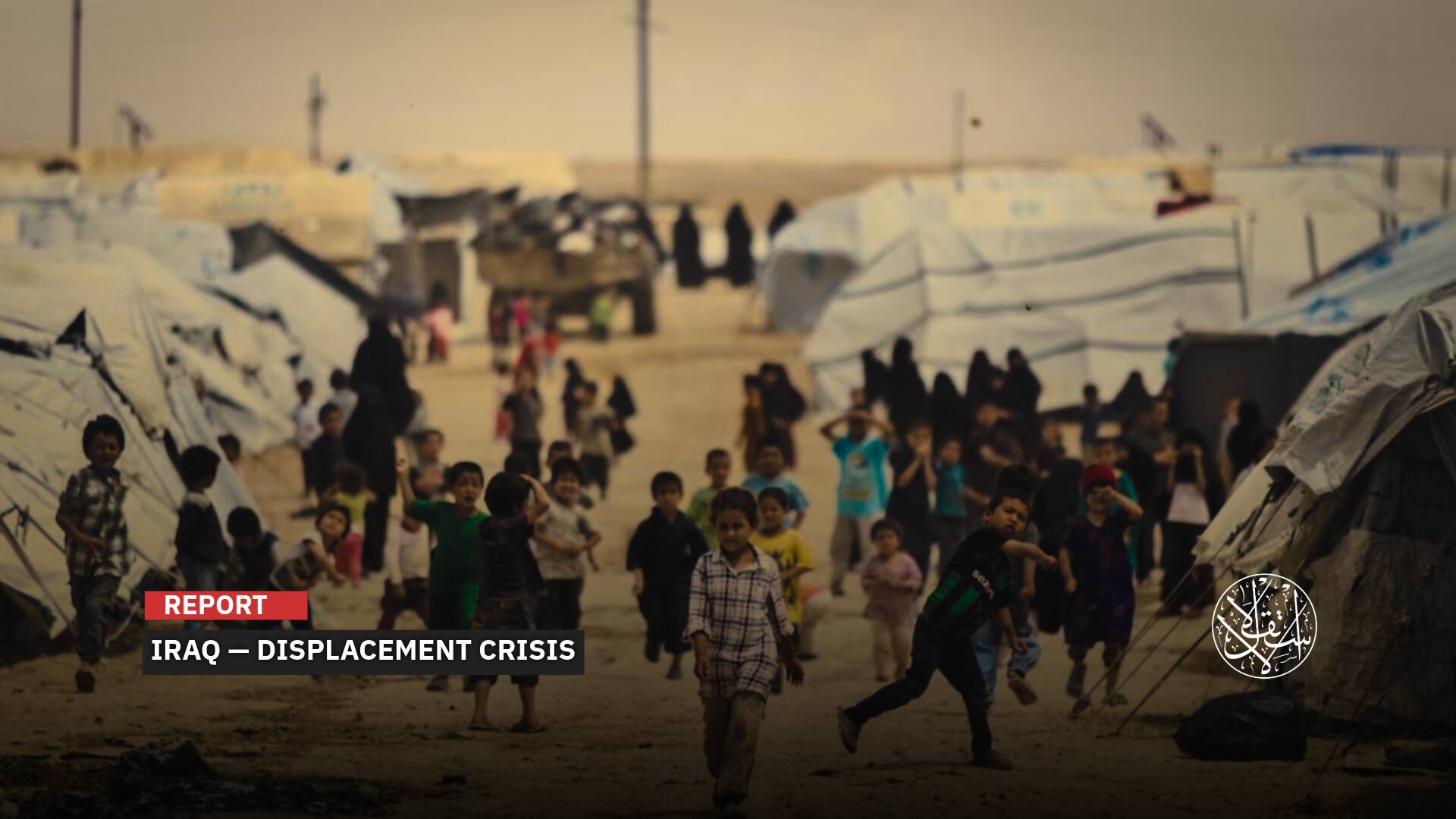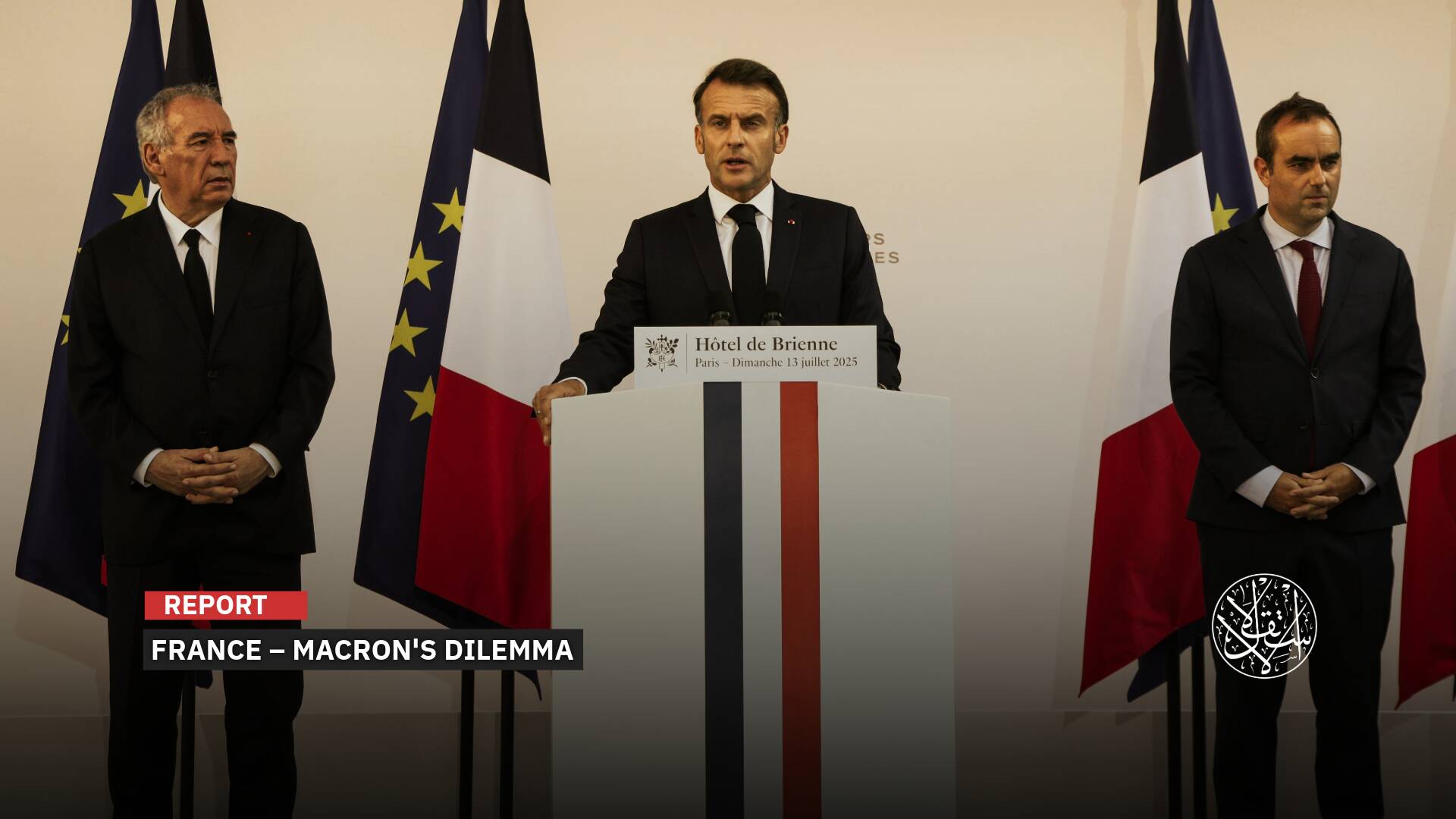How European Governments Are Reviewing Their Immigration and Residence Policies

“The EU recently passed a new, stricter asylum law which has not yet been implemented.”
Amid mounting domestic political pressure, European governments, such as the UK, Germany, and France, are moving toward stricter immigration policies.
This reflects a significant shift in European immigration policies, coinciding with attempts to regain the confidence of voters affected by the rise of right-wing parties.
These developments come within the context of a shifting European landscape, in which Western governments are reconsidering their immigration, reception, and residence policies, attempting to strike a balance between domestic security demands and human rights and international obligations.
“The mood is changing. The language, the policies, are tougher. We’re discussing things no one would have dared say a decade ago,” European Commission President Ursula von der Leyen said.
Last year, Germany reintroduced checks at all its land borders, France vowed to restore order on its frontiers, the Netherlands announced its toughest ever regime, and Sweden and Finland proposed harsh anti-migrant laws.
The mood risks straining EU ties and could endanger not just the bloc’s new asylum and immigration pact, recently finalised after nearly a decade of fraught negotiations, but its prized free-movement Schengen zone.
New UK Conditions
On May 12, UK Prime Minister Keir Starmer pledged to regain control of the country's borders, stressing that living in the UK is a privilege that must be earned.
He unveiled a new plan, known as the White Paper, aimed at reducing immigration and countering the growing support for the far-right, noting that previous policies based on setting numbers have not achieved the desired success.
The Times newspaper revealed the UK government's intention to raise English language requirements for immigrants seeking work visas, as well as impose a longer waiting period before being granted permanent residence.
It reported that the anticipated plans include requiring an A-level English language score instead of the current GCSE, reflecting a new trend to improve the competency of newcomers in the British labor market.
In the same context, the Financial Times quoted official sources as saying that the UK government is considering extending the waiting period required to apply for indefinite residence from five to ten years.
The plan includes reducing family reunification, increasing scrutiny of student visas, and reducing the length of time they can stay in the UK after completing their studies—18 months after graduation, down from the previous two years.
It also includes new visa controls that require skilled foreign workers to have a university degree to secure a job in the UK.
To curb low-skilled immigration, Cooper said she aims to cancel 50,000 low-skilled visas this year.
This plan is part of Starmer, a former human rights lawyer who voted to remain in the EU,'s efforts to contain criticism and political pressure following the gains made by the anti-immigration Reform Party in recent local elections.
However, Starmer's right-wing stance on immigration threatens to alienate Labour's broad base of liberal supporters, with the Liberal Democrats and the Greens gaining support from left-wing voters.
Starmer said that immigrants make a huge contribution to the UK, but claimed that the country risks becoming an island of strangers without more controls.
Official estimates show there could be 100,000 fewer migrants every year under new policies outlined this week.
Labour pledged in its election manifesto last year to reduce immigration, after 728,000 people entered the country in the 12 months to June.
Parliament is currently debating a separate bill to tackle irregular immigration, called the Border Security, Asylum and Immigration Bill.
According to government figures, more than 36,800 irregular immigrants crossed the Channel from France to the UK in inflatable dinghies last year.

German Roadmap
Meanwhile, the new German government, led by Chancellor Friedrich Merz, announced its intention to carry out more deportations, as well as to issue stricter orders to turn away irregular immigrants at the border, including asylum seekers.
The leader of the Christian Union (CDU) has openly criticized the immigration policy pursued under his predecessors, Olaf Scholz and Angela Merkel.
On his first day in office on May 6, Germany's new Interior Minister Alexander Dobrindt announced stricter immigration rules.
He said the decision aims to enforce order while respecting humanitarian standards, with exceptions for vulnerable groups such as pregnant women and children.
According to the Bild newspaper, Dobrindt rescinded a 2015 order that allowed undocumented third-country nationals to enter Germany.
The German government intends to strengthen its border security presence by deploying up to 3,000 additional federal police officers, bringing the total to approximately 14,000.
This move comes in response to rising public concerns following a series of attacks carried out by foreigners.
Chancellor Merz recently emphasized the need to restore order and allay voter anxiety amid the rise of the far-right Alternative for Germany (AfD) party.
The roadmap adopted by the new German ruling coalition calls for tightening border controls without compromising the right to asylum, while deporting undocumented migrants in coordination with neighboring European countries.
Human rights organizations in Germany have criticized this policy, considering it a violation of the rights of asylum seekers.
They have pointed out that it may constitute a breach of European law, which requires identifying the country responsible for examining an asylum application before taking any action.
These plans have also raised concerns among neighboring countries, such as Poland, Switzerland, and Austria, which have called on Germany to respect EU laws.
Regarding the reactions of German politicians, Katharina Droge, co-chair of the Green Party’s parliamentary group in the Bundestag, described the rejection and deportation measures as clearly contrary to European law.
Soren Pellmann, leader of the Left Party parliamentary group in the Bundestag, expressed sharp criticism at his party conference, stating that those who pursue right-wing policies out of fear of right-wingers can only lose.
In contrast, Alice Weidel, co-chairwoman of the Alternative for Germany (AfD), said that Merz had promised to change immigration policy by imposing clear measures against mass illegal immigration, but that he was now disappointing voters and surrendering to the Social Democratic Party (SPD).

French Standards
In a new step reflecting the French government's tightening of its immigration policies, Interior Minister Bruno Retailleau announced the issuance of a new administrative circular imposing stricter rules on visa procedures.
He also clarified that French citizenship should be considered an entitlement, emphasizing that it will not be granted solely on the basis of residence or lineage, but also on the basis of true belonging to the French nation.
The circular included a significant emphasis on three key criteria French authorities rely on when examining naturalization applications.
The first criterion is compliance with the law. Any application submitted by a foreigner who has previously resided in the country illegally will be rejected, and the applicant must have a completely clean criminal record.
The second criterion concerns the French language and culture. The language test requirements will be raised, and a new civic exam will be introduced starting in January 2026 to assess applicants' knowledge of French history and values.
Meanwhile, the third criterion focuses on professional integration. It is now required to demonstrate stable, legal employment for at least five years in France, along with clear evidence of sufficient income without relying on social assistance.
Although this circular is not legal, it represents a clear directive for prefects and administrators responsible for naturalization applications, potentially leading to significant changes in how these applications are handled.
These measures have sparked controversy in human rights circles, with some associations warning that they could restrict the freedom of immigrants and reduce their chances of integration into French society.
They pointed out that the new criteria could lead to the exclusion of large segments of the population who have resided in France for many years.
An estimated 66,745 people acquired French citizenship in 2024, representing an 8.3% increase compared to 2023, highlighting the scale of demand and the complexities associated with French policy regarding regulating this process.
Since his arrival at the Interior Ministry in September 2024, Retailleau has made numerous promises regarding immigration: including eliminating State Medical Aid (AME), and increasing deportations.
By the end of January, the Minister of the Interior had already tightened the rules regarding the exceptional granting of residence permits for irregular immigrants. Also known as exceptional admission to stay (admission exceptionnelle au séjour, AES).
Many undocumented workers in France rely on this system to regularize their status.
Associations and collectives representing undocumented workers protested against these guidelines, which they believe will keep them in precarious situations for even longer, or possibly even permanently.

Anti-Immigration Parties
After long being pro-immigrant and asylum-seekers, the European Union is now clearly moving toward isolation.
This is also evident in the rise of far-right parties and anti-asylum governments in more EU member states.
Last month, the EU issued a tough new asylum law, but has yet to implement the rules.
Among other things, the planned EU asylum reform stipulates that future asylum applications from people with little prospect of staying will be decided at the EU's external borders.
For this reason, 16 EU governments have called on the European Commission to revise the rules.
The law's measures are to come into force in 2026, after the European Commission sets out in coming months how it will be implemented.
Far-right lawmakers complained the overhaul did not go far enough to block access to irregular migrants, whom they accuse of spreading insecurity and threatening to submerge European identity.

In another context, Europe has witnessed a significant rise in recent years in political and social groups adopting extremist rhetoric that reflects some aspects of Nazi ideology, raising widespread concern, especially in countries such as Germany, France, the UK, and Poland.
This rise is due to the economic crises that have swept European countries following the COVID-19 pandemic, in addition to the immigration crisis, which has led to a rise in anti-immigrant rhetoric.
These extremist Nazi groups exploit popular fears to justify their racist policies and rejection of all foreigners.
The direct reason for the emergence of these groups is political tolerance, particularly with some moderate right-wing parties adopting more extreme rhetoric in an effort to gain more electoral votes.









